This article was medically reviewed by Erik Kramer, DO, MPH. Dr. Erik Kramer is a Board-Certified Primary Care Physician at the University of Colorado. With over 15 years of experience, his clinical interests include obesity and weight management, diabetes care, and preventive care, as well as embracing a holistic approach to primary care. He received his Doctorate in Osteopathic Medicine (D.O.) from the Touro University Nevada College of Osteopathic Medicine and completed his residency at Central Maine Medical Center. Dr. Kramer is a Diplomate of the American Board of Obesity Medicine.
There are 11 references cited in this article, which can be found at the bottom of the page.
wikiHow marks an article as reader-approved once it receives enough positive feedback. This article received 17 testimonials and 97% of readers who voted found it helpful, earning it our reader-approved status.
This article has been viewed 212,461 times.
Your kidneys are among one of the most important organs in your body. They have important functions in the regulation of your blood, your blood volume, blood pressure, and blood pH. They are also responsible for filtering your blood and excreting waste in the form of urine.[1] Take good care of your kidneys to improve your overall health and reduce your chances of illness. Many things can go wrong but if you follow some simple tips, you can make it less likely that you will suffer from things such as Kidney stones, kidney infections, and/or failure.
Steps
Eating Healthily
-
1Eat a balanced diet. A healthy balanced diet is a major factor in good overall health, and kidney health is no exception. Avoid fatty and salty food, and eat lots of fresh fruit and vegetables.[2] If you are unsure about what a balanced diet might look like, look at the food groups identified in the food pyramid and go from there.
- The original food pyramid has been criticised by public health experts, so you may want to look at the more recent healthy eating pyramid which combines healthy eating with weight control.[3]
-
2Lower the amount of salt in your diet. It is very common for people to have diets that exceed the recommended amount of salt, or sodium. Diets that are high in sodium can have particularly bad effects on your kidneys, as a high sodium diet can lead to high blood pressure. Over time, having high blood pressure will damage your kidneys and could make you more vulnerable to serious kidney problems.[4]
- Talk to your doctor about the right level of sodium intake for you. Climate and personal health can impact how much salt your body needs, so always check with a doctor first.
- Choosing fresh rather than packaged foods will most likely mean that you are consuming less sodium.
- When buying pre-packaged food, keep an eye out for those labeled ‘no added salt’ or something similar.
- Get into the habit of reading food labels and finding out the sodium levels in foods.
Advertisement -
3Eat kidney-friendly foods. The most important thing is to have a balanced and healthy diet, but there are some foods out there that are particularly beneficial for your kidneys and kidney function. Foods with antioxidants, typically fruit and vegetables, can be a boost to your overall health and your kidneys. Some of the best ones to ensure you have regularly on your shopping list are cabbage and cauliflower, berries (especially cranberries), red bell peppers, and onions.[5]
- Although cranberries are very good for you, cranberry juice you buy in a carton might have an awful lot of sugar in it.
- Asparagus is thought to be especially good for the kidneys. It can change the color and smell of your urine, though, so don't be alarmed if that happens.
Drinking Healthily
-
1Drink lots of water. Staying well-hydrated has big benefits for your health. Being well-hydrated will mean that your urine is more diluted which will help maintain kidney function and health. Some doctors recommend eight glasses a day, but in some cases, more than this is recommended. Water helps to flush toxins and waste from the body so being hydrated aids the kidneys with this task.[6]
-
2Drink water at regular intervals. Drinking water frequently throughout the day, rather than gulping down half a liter twice a day, could also contribute to improved kidney function. The kidneys keep fluid in your body regulated, so it is easier for them to do this if you drink a little and often.[7]
-
3Only drink alcohol in moderation. Drinking a lot of alcohol can have very serious negative consequences for your kidney functionality. One of the kidney’s main tasks is filtering out harmful substances from your blood. Alcohol is one of the harmful substances that the kidney deals with, and excessive alcohol can negatively impact the kidney’s ability to do this.[8]
- Alcohol also dehydrates you, and this harms your kidneys just as staying well-hydrated has a positive one.
- For most people, alcohol is fine to consume in moderation. Try to limit yourself to 3-5 drinks a week.
Controlling your Weight and Exercising Regularly
-
1Control your weight. It is important to keep to a healthy weight, as being overweight can increase your blood pressure which in turn puts more strain on your kidneys. Having a healthy and balanced diet and taking regular exercise should be enough for you to maintain a healthy weight and keep your blood pressure down.[9]
- Being overweight can also lead to diabetes, which, together with high blood pressure, are the two major causes of kidney disease.[10]
- Obesity does not mean that you have kidney problems. It is, however, a risk factor that you and your doctor should monitor together.
-
2Get plenty of exercise. Being active and exercising has a wide range of beneficial consequences for health and plays an important part in maintaining a healthy weight. It helps improve circulation and mobility which is good news for the kidneys which work to regulate blood in the body. Regular exercise can help you to prevent diabetes and control blood pressure, which decreases the strain on your kidney and lowers the likelihood of kidney disease.[11]
- If you are not used to regular exercise it’s important to make a part of your normal routine to feel the long-term benefit and improve kidney function.
- Finding a sport or activity that you really enjoy is probably the best way to make exercise fun for someone who isn’t used to it. If you used to play a sport as a kid, try taking that up again in a more casual format. For example, try swimming laps if you used to be on the swim team.[12]
- Exercising with friends or your partner might make it a lot more fun and laid back if you don’t want to join a club or a team.
-
3Get a good vitamin D supply by exercising outside. Vitamin D deficiency has been linked to kidney disease. One of the jobs of the kidneys is to activate vitamin D, so getting out in the sunshine and taking vitamin D in from the sun lowers the pressure on the kidneys.[13]
- A minimum of fifteen minutes in the sun a day can help your kidney function.
- Vitamin D also helps with the regulation of the calcium and phosphorous levels in your body.
Learning about how Kidney Problems Develop
-
1Understand what kidneys do. The first thing to do is to read up a bit and educate yourself a little about how kidneys function and what their purposes are. The kidneys play a large role in maintaining healthy blood and excreting waste in your urine.[14] If you think about this, you will realize how important healthy and high functioning kidneys are to your overall health.
-
2Know how kidney problems come about. Once you have a grasp of the functions and importance of healthy kidneys, find out a little about how problems with kidneys can be caused. The 3 most common causes of kidney disease, frequent urinary tract infections, and diabetes. There are numerous other potential causes, including poisoning and physical damage or trauma. For example, kidney disease could develop after a particularly heavy blow to the kidneys.[15]
- Some painkillers used regularly for a long time can cause kidney problems, so if you take them regularly check with your doctor.
-
3Ask your parents if there is a history of kidney problems in the family. Kidney problems are often hereditary, so if your family has a history of kidney-related health problems you could be at a higher risk. If this is the case, you can talk to your doctor to get more specific medical guidance on how to avoid hereditary kidney problems.[16]
Expert Q&A
Did you know you can get expert answers for this article?
Unlock expert answers by supporting wikiHow
-
QuestionHow can I improve my kidney function?
 Claudia Carberry, RD, MSClaudia Carberry is a Registered Dietitian specializing in kidney transplants and counseling patients for weight loss at the University of Arkansas for Medical Sciences. She is a member of the Arkansas Academy of Nutrition and Dietetics. Claudia received her MS in Nutrition from the University of Tennessee Knoxville in 2010.
Claudia Carberry, RD, MSClaudia Carberry is a Registered Dietitian specializing in kidney transplants and counseling patients for weight loss at the University of Arkansas for Medical Sciences. She is a member of the Arkansas Academy of Nutrition and Dietetics. Claudia received her MS in Nutrition from the University of Tennessee Knoxville in 2010.
Master's Degree, Nutrition, University of Tennessee Knoxville Master's Degree, Nutrition, University of Tennessee KnoxvilleExpert Answer
Master's Degree, Nutrition, University of Tennessee KnoxvilleExpert Answer -
QuestionHow do I increase my urine output?
 Jurdy Dugdale, RNJurdy Dugdale is a Registered Nurse in Florida. She received her Nursing License from the Florida Board of Nursing in 1989.
Jurdy Dugdale, RNJurdy Dugdale is a Registered Nurse in Florida. She received her Nursing License from the Florida Board of Nursing in 1989.
Medical Review Board
References
- ↑ https://www.niddk.nih.gov/health-information/kidney-disease/kidneys-how-they-work
- ↑ https://www.kidneyfund.org/living-kidney-disease/healthy-eating-activity/kidney-friendly-eating-plan
- ↑ http://www.hsph.harvard.edu/nutritionsource/pyramid-full-story/#healthy-eating-pyramid
- ↑ https://www.kidney.org/newsletter/top-10-tips-reducing-salt-your-diet
- ↑ https://www.kidneyfund.org/living-kidney-disease/healthy-eating-activity/kidney-friendly-eating-plan
- ↑ https://www.kidney.org/content/6-tips-be-water-wise-healthy-kidneys
- ↑ https://www.kidney.org/content/6-tips-be-water-wise-healthy-kidneys
- ↑ https://www.kidney.org/atoz/content/alcohol
- ↑ https://www.kidney.org/content/how-does-my-weight-affect-my-risk-kidney-disease
- ↑ https://www.kidney.org/atoz/content/obesity
- ↑ https://www.kidney.org/atoz/content/exercisewyska
- ↑ https://www.kidney.org/atoz/content/exercisewyska
- ↑ https://www.kidney.org/news/kidneyCare/spring10/VitaminD
- ↑ https://www.niddk.nih.gov/health-information/kidney-disease/kidneys-how-they-work
- ↑ https://www.niddk.nih.gov/health-information/kidney-disease/kidneys-how-they-work
- ↑ https://www.kidney.org/news/ekidney/august14/10_Signs_You_May_Have_Kidney_Disease
About This Article
To improve kidney function, it’s important to avoid fatty and salty foods, since a high-sodium diet can lead to high blood pressure, which can damage your kidneys. Instead, eat lots of fresh fruit and vegetables, including kidney-friendly foods such as cabbage, cauliflower, and berries. You should also make sure to drink lots of water at regular intervals throughout the day to help your kidneys flush toxins out of your body. Additionally, try to exercise regularly, as this helps to prevent diabetes and control blood pressure, which in turn reduces strain on your kidneys. For more tips from our Medical co-author, including how to understand why kidney problems arise, read on!
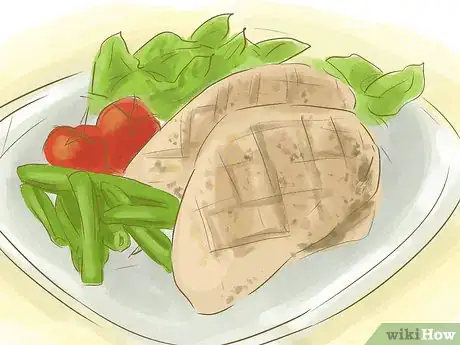
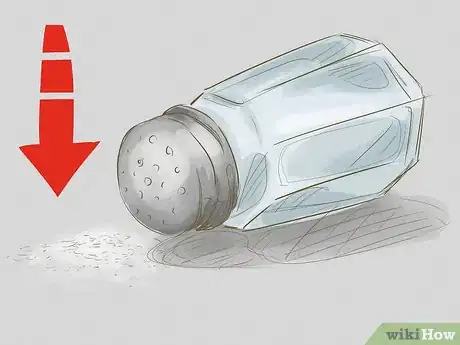
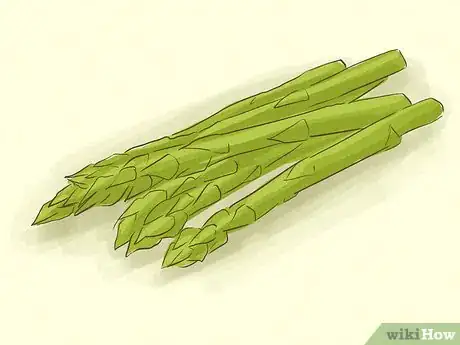
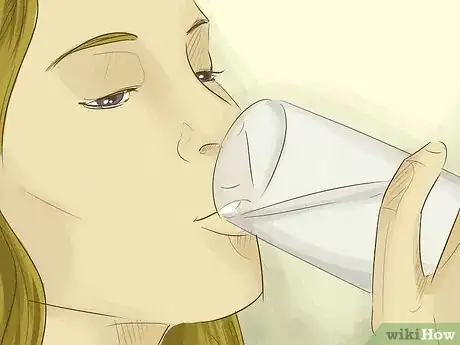
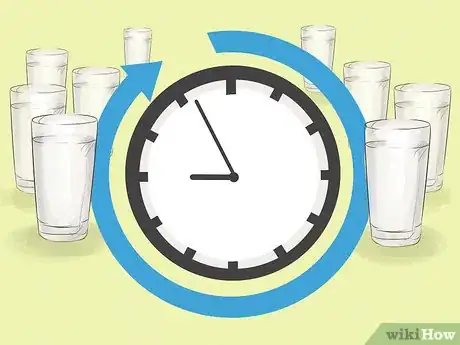
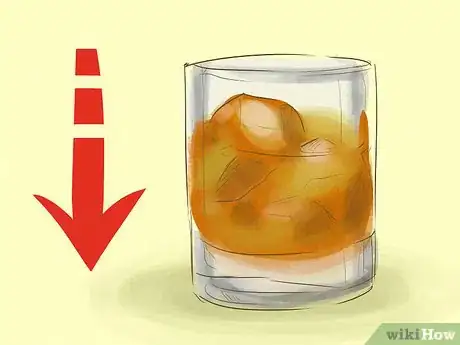
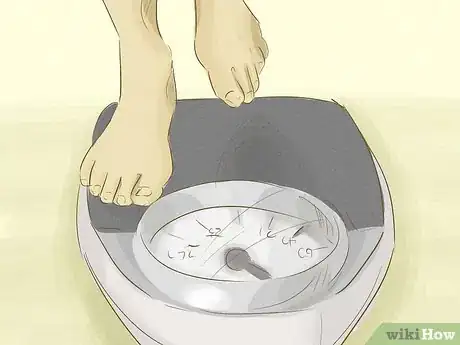




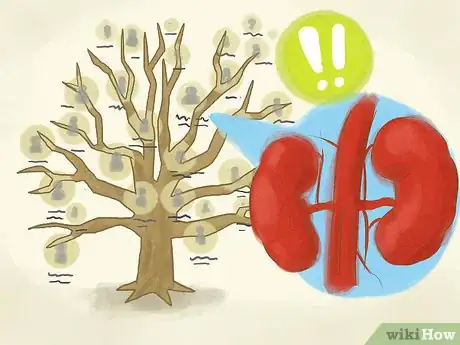
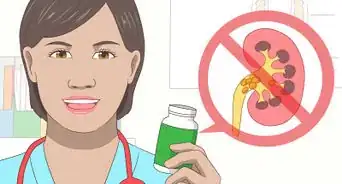

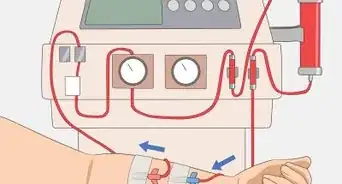




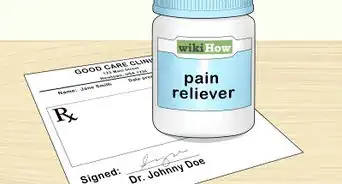




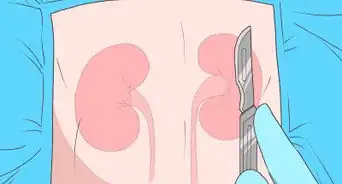
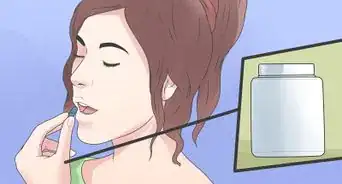









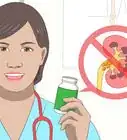

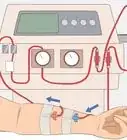




































Medical Disclaimer
The content of this article is not intended to be a substitute for professional medical advice, examination, diagnosis, or treatment. You should always contact your doctor or other qualified healthcare professional before starting, changing, or stopping any kind of health treatment.
Read More...